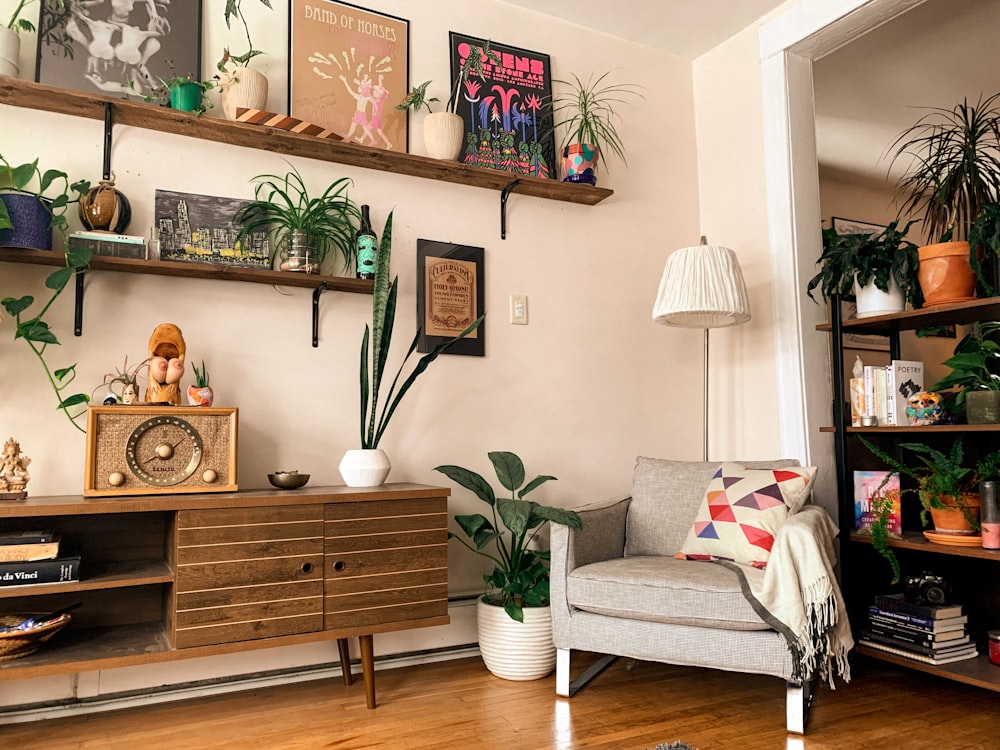Welcome to the world of minimalism, where less is more and sustainability is key. In a consumer-driven society, it’s easy to get caught up in the cycle of buying and owning more stuff. But have you ever stopped to consider the impact of our relentless pursuit of material possessions on the environment?
The Impact of Minimalism on Sustainability
In this article “The Impact of Minimalism on Sustainability : Rethinking Consumerism in 2023”, we will explore the powerful connection between minimalism and sustainability. We will delve into the environmental benefits of embracing a minimalist lifestyle, the social and psychological aspects of minimalism, and its role in transitioning towards a circular economy. We will also provide practical tips for incorporating minimalism into your daily life and discuss the economic implications, challenges, and criticisms associated with this lifestyle choice. Finally, we will explore the future outlook of minimalism in sustainable development.
So, whether you are a seasoned minimalist or new to the concept, get ready to discover the profound impact of minimalism on sustainability and how it can transform our world for the better.
Let’s dive in!
Understanding Minimalism and Sustainability
In a world where consumerism seems to be the norm, minimalism is gaining traction as a lifestyle choice that promotes sustainability. By embracing minimalism, individuals strive to reduce their material possessions and focus on what truly matters. But what exactly is minimalism, and how does it relate to sustainability? Let’s dive in and explore these concepts further.
Defining Minimalism
Minimalism is a mindset and a way of life that encourages individuals to simplify and declutter their physical and mental spaces. It is about intentionally choosing to live with less, only keeping items that are essential and bring joy. Minimalism goes beyond just tidying up – it is a deliberate choice to reject the excessive accumulation of possessions and prioritize experiences and personal growth instead.
Exploring the Concept of Sustainability
Sustainability, on the other hand, refers to meeting the needs of the present generation without compromising the ability of future generations to meet their own needs. It involves finding a balance between environmental, social, and economic factors. Sustainability focuses on conserving resources, reducing waste, and promoting long-term well-being for both people and the planet.
Minimalism and sustainability go hand in hand. By adopting a minimalist lifestyle, individuals can make a positive impact on the environment while also improving their own well-being. Let’s take a closer look at the environmental benefits of minimalism.
The Environmental Benefits of Minimalism
Minimalism is a lifestyle that promotes simplicity and conscious consumption. By adopting a minimalist approach, we can significantly reduce our environmental impact. Here are some of the environmental benefits of minimalism:
Reducing Resource Consumption
One of the fundamental principles of minimalism is owning fewer possessions. This means we consume fewer resources in the production and transportation of goods. By resisting the urge to constantly buy new things, we reduce the demand for raw materials like timber, plastics, and metals. This, in turn, helps to conserve natural resources and protect ecosystems.
Minimizing Waste Generation
Minimalism encourages us to declutter and let go of things we no longer need. As a result, we create less waste. When we accumulate fewer possessions, we produce less waste in the form of packaging, product waste, and ultimately, landfill waste. This reduction in waste generation contributes to a cleaner and healthier environment.
Lowering Carbon Footprint
A minimalist lifestyle also helps to reduce our carbon footprint. The carbon footprint refers to the amount of greenhouse gases, especially carbon dioxide, that are released into the atmosphere as a result of human activities. By consuming less, minimizing our use of energy, and opting for more sustainable alternatives, such as public transportation or biking instead of driving, we can significantly lower our carbon emissions and combat climate change.
In a nutshell, minimalism leads to a more sustainable use of resources, a reduction in waste, and a lower carbon footprint. By adopting a minimalist mindset, we can play our part in preserving the environment for future generations.
“The greatest threat to our planet is the belief that someone else will save it.” – Robert Swan
Table: Environmental Benefits of Minimalism
| Environmental Benefit | Description |
|---|---|
| Reduced resource consumption | Owning fewer possessions leads to less demand for raw materials. |
| Minimized waste generation | Decluttering helps to reduce waste in terms of packaging and product waste. |
| Lowered carbon footprint | Consuming less and opting for sustainable alternatives reduces carbon emissions. |
By considering the environmental benefits of minimalism, we can not only simplify our lives but also contribute to creating a greener and more sustainable planet.
Social and Psychological Aspects of Minimalism
Minimalism is not just about decluttering physical spaces and reducing material possessions. It also has significant social and psychological implications. By embracing minimalism, individuals can break free from the materialistic culture, enhance their mental well-being, and promote meaningful connections with others. Let’s delve deeper into these aspects:
Breaking Free from Materialistic Culture
In today’s consumer-driven society, we are constantly bombarded with advertisements and societal pressures to acquire more possessions. This materialistic culture can lead to dissatisfaction, stress, and a never-ending pursuit of more. Minimalism, on the other hand, encourages us to question our desires and prioritize experiences and relationships over material possessions. It helps us break free from the constant need to accumulate things and find contentment in simplicity.
“Minimalism is the intentional promotion of the things we most value and the removal of anything that distracts us from it.” – Joshua Becker
Enhancing Mental Well-being
Living a minimalist lifestyle can have a positive impact on our mental and emotional well-being. Here’s how:
Reducing Stress
Cluttered and chaotic environments can contribute to feelings of stress and overwhelm. By simplifying our living spaces and getting rid of unnecessary items, we create a sense of orderliness and calmness in our surroundings.
Fostering Focus and Clarity
The minimalist approach helps us focus on what truly matters by eliminating distractions. When we are not surrounded by excessive possessions, our minds become clearer, allowing us to concentrate on our goals and priorities.
Boosting Creativity
Minimalism promotes creativity by encouraging us to think outside the box. With fewer material possessions, we are challenged to find innovative ways to meet our needs, leading to enhanced problem-solving skills and creative thinking.
Promoting Meaningful Connection
In a world often characterized by superficial relationships and constant digital distractions, minimalism offers an opportunity to cultivate meaningful connections with others.
Quality over Quantity
By embracing minimalism, we learn to value quality relationships over a large social network. We can focus on nurturing deep connections with a select group of friends and loved ones, fostering a sense of belonging and support.
Increased Presence
With fewer material possessions to occupy our time and attention, we can be more present in our interactions with others. Minimalism encourages us to engage fully in conversations and activities, fostering stronger bonds and deeper connections.
Shared Experiences
By opting for experiences rather than things, minimalism promotes shared adventures and memories. Whether it’s exploring nature, trying new hobbies, or traveling, these shared experiences create lasting bonds and enrich our lives.
“The best things in life aren’t things.” – Art Buchwald
In conclusion, minimalism goes beyond decluttering and organizing physical spaces. It has profound social and psychological benefits. Embracing minimalism can help individuals break free from materialistic culture, enhance their mental well-being, and foster meaningful connections with others. By prioritizing experiences and relationships over possessions, minimalism allows us to find contentment in simplicity and live a more fulfilling life.
Minimalism: A Step towards Circular Economy
In recent years, minimalism has gained popularity as a lifestyle choice characterized by simplicity, decluttering, and intentional consumption. While minimalism is often associated with personal well-being and reducing material possessions, it also has a profound impact on sustainability. Embracing minimalism can be seen as a step towards achieving a circular economy, which aims to minimize waste, maximize resource efficiency, and promote a more sustainable future.
Encouraging Repair and Reuse
One of the key principles of minimalism is to focus on quality rather than quantity. By choosing high-quality products that are built to last, minimalists avoid the need for constant replacements and repairs. This mindset encourages repair and reuse, contributing to the reduction of waste. Instead of discarding broken or damaged items, minimalists seek to fix them or find creative ways to give them a new purpose. This approach reduces the demand for new products and helps to conserve resources.
Embracing Minimal Packaging
Minimalism also encourages a mindset of mindful consumption, which extends to the packaging of products. Minimalists prioritize purchasing products that come with minimal or sustainable packaging, reducing plastic waste and unnecessary materials. By choosing products with minimal packaging or opting for package-free alternatives, minimalists not only minimize their environmental impact but also send a message to manufacturers to prioritize sustainable packaging options.
Participating in Sharing Economy
The sharing economy is another concept closely aligned with minimalism and sustainability. Minimalists understand that they don’t need to own everything they might need or want. Instead of buying new items, minimalists participate in sharing platforms such as community libraries, tool libraries, or coworking spaces. They borrow or rent items from others, which not only saves money but also reduces the demand for new production. This collaborative approach reduces waste and promotes the efficient use of resources.
By adopting these practices, minimalism contributes to the transition towards a circular economy. It aligns with the principles of the circular economy by focusing on reducing waste, reusing and repairing items, and maximizing resource efficiency. Through minimalism, individuals have the power to make a difference and shift towards a more sustainable way of living.
“Minimalism is not about depriving yourself; it’s about aligning your possessions and actions with your values and what truly brings you joy.” – Unknown
There are various ways in which minimalism can be incorporated into our daily lives, promoting the principles of a circular economy. Let’s explore some practical tips for embracing minimalism in the next section.
Also Read: Sustainable Minimalism: Eco-Friendly Choices for First-time Homeowners in 2023
Practical Tips for Embracing Minimalism
Are you ready to embrace the minimalist lifestyle? Here are some practical tips to help you get started and make the most out of minimalism:
Decluttering and Organizing Living Spaces
One of the first steps to embracing minimalism is decluttering your living spaces. Take a look around your home and identify items that no longer serve a purpose or bring you joy. Be honest with yourself and let go of unnecessary belongings. Here’s how you can approach decluttering:
- Start small: Begin with one room or even a single area, like a closet or kitchen drawer.
- Use the KonMari method: Follow Marie Kondo’s principles of keeping only what sparks joy in your life.
- Donate or sell: Give away or sell the items you no longer need to reduce waste and give them a new life.
Once you’ve decluttered, focus on organizing your remaining items. Invest in storage solutions like baskets, boxes, and bins to keep everything tidy and easily accessible. Remember, minimalism isn’t about getting rid of everything, but rather keeping what matters.
Adopting a Capsule Wardrobe
Simplify your wardrobe by adopting a capsule wardrobe. A capsule wardrobe consists of a limited number of versatile, high-quality clothing items that can be mixed and matched to create various outfits. Here’s how you can create your own capsule wardrobe:
- Assess your current wardrobe: Take stock of the clothes you already have and identify your favorite pieces.
- Stick to a color palette: Choose a few neutral colors that can easily be paired together.
- Invest in quality essentials: Focus on timeless pieces that can be worn for multiple seasons.
- Limit the number of items: Aim for around 30-40 items, including clothing, shoes, and accessories.
By having a curated wardrobe, you’ll save time getting dressed in the morning and reduce the urge to constantly shop for new clothes.
Mindful Consumption Practices
Minimalism is about being intentional with your purchases and practicing mindful consumption. Here’s how you can be more conscious about what you buy:
- Make a list: Before going shopping, write down what you truly need to avoid impulsive purchases.
- Quality over quantity: Invest in well-made products that will last longer, rather than buying cheap items that need frequent replacements.
- Borrow or rent: Instead of buying something that you’ll only need temporarily, consider borrowing from friends or renting from specialized services.
- Avoid trends: Don’t succumb to the pressure of staying up-to-date with the latest trends. Choose timeless styles that will stand the test of time.
By adopting mindful consumption practices, you’ll not only save money but also reduce your environmental impact.
Remember, embracing minimalism is a journey, and it’s important to take it at your own pace. Start with small changes and gradually incorporate minimalistic principles into different aspects of your life. Enjoy the newfound sense of freedom and focus on what truly matters to you. Happy minimalism!
Economic Implications of Minimalism
Embracing minimalism goes beyond just decluttering our living spaces and adopting a simplified lifestyle. It also has significant economic implications that can reshape consumerism and the retail industry. In this section, we will explore the economic aspects of minimalism and how it can contribute to a more sustainable and thriving economy.
Impact on Consumerism and Retail Industry
Minimalism challenges the traditional notions of consumerism, which are built on the idea of constantly acquiring and accumulating possessions. By promoting a mindset of mindful consumption and intentional purchasing, minimalism encourages individuals to break free from the cycle of excessive buying.
This shift in consumer behavior can have a direct impact on the retail industry. With fewer people buying unnecessary items, retailers may experience a decline in sales of non-essential products. However, this also presents an opportunity for businesses to adapt and align their offerings with the values of minimalism and sustainability.
Shift towards Sustainable Business Models
As more people embrace minimalism, there is a growing demand for products that are ethically sourced, environmentally friendly, and durable. This shift in consumer preferences creates an incentive for businesses to adopt sustainable practices and develop products that align with these values.
Companies that integrate sustainability into their business models have the potential to attract a new market segment of minimalists and conscious consumers. By focusing on quality over quantity, these businesses can differentiate themselves and build a loyal customer base.
Job Creation in Green Sectors
While minimalism may initially seem counterintuitive to economic growth, it can actually have a positive impact on job creation, particularly in green sectors. As the demand for sustainable products and services grows, there will be a need for innovation and development in renewable energy, eco-friendly manufacturing, and green technologies.
Moreover, minimalism encourages the concept of repair and reuse, which can give rise to new job opportunities in the areas of repairing, upcycling, and refurbishing. Instead of discarding items, there is a shift towards prolonging their lifespan, leading to a potential increase in jobs within the circular economy.
The Rise of Ethical Investing
Minimalism is not limited to consumer behavior; it is also influencing investment choices. As more individuals prioritize sustainability and ethical considerations, there has been a growth in the field of ethical investing. Ethical investors seek opportunities to support companies that align with their values, such as those emphasizing social responsibility and environmental stewardship.
This shift in investment preferences can drive capital towards sustainable businesses, encouraging further growth and innovation in green sectors. It also holds companies accountable for their environmental and social impact, as they are now being evaluated based on a broader set of criteria beyond financial performance.
Conclusion
Minimalism has the potential to reshape consumerism and create a more sustainable and resilient economy. By challenging our consumption habits and promoting mindful purchasing, minimalism encourages businesses to adapt to changing consumer preferences and adopt sustainable practices. It also opens up new opportunities for job creation in green sectors and promotes the rise of ethical investing.
As we move towards a more sustainable future, it is crucial for individuals, businesses, and policymakers to recognize the economic implications of minimalism and work towards creating a society where sustainability is at the core of our economic system. Through collaboration and innovation, we can embrace minimalism as a catalyst for positive change and pave the way for a brighter and more sustainable future.
Challenges and Criticisms of Minimalism
While minimalism has gained popularity in recent years as a sustainable lifestyle choice, it is not without its challenges and criticisms. It is important to address these concerns in order to have a balanced understanding of this movement. Let’s take a closer look at some of the challenges and criticisms of minimalism:
Addressing Potential Downsides
- Perceived Lack of Individuality: One common criticism of minimalism is that it promotes a bland and generic aesthetic, where everyone’s living spaces and wardrobes look the same. However, it is important to note that minimalism is about simplifying and decluttering, not erasing personal style. Minimalism encourages individuals to focus on what truly brings them joy and allows them to express their individuality in other ways.
Navigating the Consumerist Society
- Social Pressures and FOMO: In a society that often equates material possessions with personal success and happiness, embracing minimalism can be challenging. Minimalists may face resistance from friends, family, and societal norms that encourage constant consumerism. It can be difficult to resist the urge to buy the latest trends or keep up with the Joneses. However, minimalists can find strength in their values and the positive impact they are making on the environment and their well-being.
Dealing with Social Pressures
- Accessibility and Affordability: Critics argue that minimalism can be perceived as an elitist lifestyle choice. The idea of only owning what you need implies that you can afford to replace or repair items when necessary. However, it is important to remember that minimalism is not about throwing away everything you own and buying new things. It is about mindful consumption, making intentional choices, and prioritizing quality over quantity. Minimalism can be adapted to fit different budgets and circumstances.
Minimalism is not a one-size-fits-all solution, and it is crucial to acknowledge the challenges and criticisms it faces. It is important to have open conversations about these concerns and find ways to address them. Despite these challenges, the benefits of minimalism in fostering sustainable living and promoting mental well-being outweigh the criticisms. By embracing minimalism in a thoughtful and mindful way, we can make a positive impact on our environment and our lives.
Future Outlook: Role of Minimalism in Sustainable Development
As we look towards the future, it is evident that the role of minimalism in sustainable development will continue to grow in importance. As individuals, businesses, and governments become more aware of the environmental and social impacts of consumerism, they are beginning to embrace minimalist principles as a means to create a more sustainable future.
Education and Awareness
Education and awareness play a vital role in shaping the future of minimalism and sustainable development. By educating individuals about the benefits of minimalism and the negative consequences of excessive consumption, we can empower people to make informed choices and adopt more sustainable lifestyles. This can be done through workshops, online courses, and awareness campaigns that highlight the importance of reducing waste, conserving resources, and embracing a minimalist mindset.
Government Policies and Regulations
Government policies and regulations can also play a crucial role in promoting minimalism and sustainable development. By implementing policies that encourage recycling, promote sustainable practices in industries, and provide incentives for businesses to adopt eco-friendly practices, governments can create an environment that supports sustainable living. Additionally, regulations that limit the production and distribution of single-use plastics and encourage renewable energy sources can significantly impact the future of minimalism and sustainability.
Collaboration among Industries and Consumers
Collaboration among industries and consumers is essential for driving meaningful change and shaping the future of minimalism and sustainable development. Companies can collaborate with consumers by offering products and services that align with minimalist principles, such as durable and repairable goods, eco-friendly packaging, and sustainable production practices. By involving consumers in the decision-making process and considering their needs and values, businesses can create a symbiotic relationship that supports both minimalism and sustainability.
It is also important for industries to collaborate with each other to find innovative solutions that promote sustainability. By sharing best practices, research, and resources, industries can work together towards creating a circular economy that minimizes waste and maximizes resource efficiency. This collaboration can lead to the development of new technologies, materials, and business models that support minimalism and sustainable development.
In conclusion, the role of minimalism in sustainable development is crucial for creating a better future. Through education and awareness, government policies and regulations, and collaboration among industries and consumers, we can create a world where minimalism is embraced as a means to promote environmental sustainability and enhance our quality of life. So, let us all take small steps towards minimalism and make a big impact on the sustainable development of our planet.
Also Read: The Impact of Minimalism on Sustainability: Rethinking Consumerism in 2023
Conclusion
In conclusion, minimalism offers a powerful solution to the problems posed by consumerism and provides a sustainable way of living. By embracing minimalism, individuals can not only reduce their environmental impact but also experience numerous social and psychological benefits. The principles of minimalism align with the concept of a circular economy, promoting repair, reuse, and responsible consumption.
While minimalism may pose some challenges and face criticisms, it is important to address these issues and continue to navigate the consumerist society. Education and awareness play a key role in promoting minimalism as a sustainable minimalist lifestyle choice, and government policies and regulations can further support this movement. Collaboration among industries and consumers is crucial in driving sustainable development.
At Minimalist Home Guru, we believe in the power of minimalism to transform homes and lives. We are dedicated to providing guidance and support to new home buyers who are seeking a minimalist aesthetic. Our expertise in decluttering, selecting clean-lined furniture, and creating a calming and clutter-free living space will help you embrace minimalism and create a sustainable home environment.
Ready to embark on your minimalist journey? Visit our website Minimalist Home Guru for more information and inspiration. Let us guide you towards a simpler, more sustainable, and fulfilling lifestyle that prioritizes what truly matters.
Frequently Asked Questions
- What is minimalism and how does it relate to sustainability?Minimalism is a lifestyle that advocates for simplifying one’s life by reducing clutter, possessions, and consumerism. It relates to sustainability by promoting conscious consumption, reducing waste, and minimizing the negative impact on the environment.
- How does minimalism contribute to a more sustainable future?Minimalism contributes to a more sustainable future by encouraging people to buy and own less, reducing their ecological footprint, and conserving resources. It promotes the use of durable and high-quality products, as well as supporting sustainable and ethical production practices.
- What are the benefits of practicing minimalism for the environment?Practicing minimalism benefits the environment by reducing landfill waste, decreasing energy consumption, conserving water resources, and minimizing pollution. It also helps protect natural habitats and promotes a more sustainable use of resources.
- How can individuals incorporate minimalism into their daily lives?Individuals can incorporate minimalism into their daily lives by decluttering their living spaces, adopting a ‘less is more’ mindset when making purchasing decisions, supporting local and sustainable businesses, and embracing a minimalist wardrobe and lifestyle. It’s about prioritizing experiences and quality over material possessions.
- Is minimalism only limited to material possessions?No, minimalism goes beyond material possessions. It extends to one’s mindset, relationships, and daily habits. It involves simplifying all aspects of life, including mental clutter, commitments, and the focus on what truly brings value and joy.










